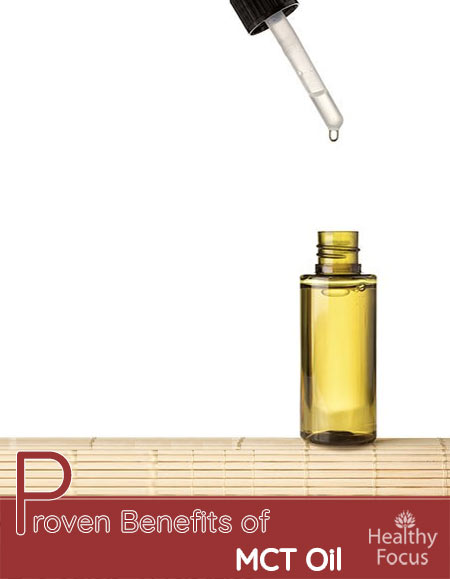Last Updated on April 27, 2019 by Marc Seward
MCT Oils
MCTs stand for medium chain triglycerides which are a type of beneficial fatty acid with a variety of health benefits including weight control, heart health and brain function. Modern western diets and have meant that the majority of people do not get sufficient MCTs. Another factor is that we have been conditioned to think that all saturated fats are artery clogging and bad for you but modern research suggests that is far from being the case. MCTs are found naturally in certain products like goat’s milk, cheeses and in coconut oil. When we look at certain cultures like Polynesia where coconut oil makes up a large part of the diet, it is very revealing. Compared with people in the West, heart disease in Polynesia is significantly lower than the West.
What are MCTs exactly?
As I have already mentioned, MCTs stand for medium chain triglycerides which are also known as fatty acids. The ‘medium’ in MCT refers to the chain length and distinguishes them from short and long chain acids. The majority of oils contain a combination of the 3 chain lengths. MCTs contain from 6 to 12 carbon chains and are specifically known as:
Caproic Acid (C6)
Caprylic Acid (C8)
Capric Acid (C10)
Lauric Acid (C12)
Anybody familiar with astrology will know that capra means goat so it is no surprise that the first 3 MCTs are found in abundance in goat’s milk…hence the name. Lauric acid on the other hand is found naturally in Mother’s milk and in abundance in coconut oil. In fact, lauric acid makes up over 50% of coconut oil and is known to have a variety of healthful benefits but there is some debate over whether it is a true MCT.
What is so special about MCTs?
I apologize here for the technicalities but MCTs basically derive the name from their chemical structure. All fatty acids are comprised of carbon strings with connected hydrogen. Fats are essentially categorized depending on the amount of carbons that they have. Short chain fatty acids such as butyric acid and acetate possess less than 6 carbons, medium chain fatty acids have between 6 and 12 whereas long chain fatty acids such as Omega-3 consist of between 13 and 21 carbons.
The reason that MCTs are considered so healthy is that they are very easily digested compared to long chain fats. When consumed, they are transferred directly to the liver from which point they can affect your metabolism positively because of the thermogenic effect they have. Unlike other types of fats which get stored as fat, MCTs are quickly utilized as energy, in the shape of ketones, by the body and serve as fuel for your system. This is one of the reasons that MCTs are considered a great way to lose and maintain weight and one of the major driving forces behind their increasing popularity.
In simple terms, because MCTs are so easily absorbed, the body has a lot less work to do in breaking the carbon bonds apart. In addition, MCTs are smaller meaning they can penetrate the cell membranes far more easily; this in turn means that our bodies don’t need to make use of any special enzymes to utilize them.
While the driving force behind the popularity of MCT oils might be weight loss and weight control further popularized by diets plans like the Bulletproof diet, there are many other health benefits to MCTs and MCT oil. They are a natural source of antioxidants which can help your body repair the damaging effects of cellular decay. They have natural anti-inflammatory benefits and can also support the gut’s microflora and combat harmful viruses, bacteria and fungi. We will go into the benefits in more detail in the next section of this article but MCTs can basically help us to maintain body weight, boost energy, mood and focus, improve digestion and stave off illnesses.
Benefits of MCT oil
So should you be adding MCT oil to your diet?
MCT oils have a number of excellent health benefits making many people rethink the idea that all saturated fats are bad for you. Remember however that unlike coconut oil, MCT oil is manufactured and has either had the lauric acid removed or the lauric acid is still present in very small amounts.
1. Weight Control and Weight Loss
As with any other diet that promises immediate weight loss, you need to be realistic. MCT it is not a magic pill but when added to your diet as a part of an overall healthy diet and weight loss plan, there is certainly evidence that it can help you to lose weight. When compared with many alternative fats and oils, MCT oil has a beneficial effect on weight loss and fat burn. It actually helps us look after our weight by raising the body’s metabolic rate and increasing satiety or the feeling of fullness after you have eaten.
Many studies have demonstrated that MCTs can have a very positive impact on the body’s metabolic function.
One such study published in 2001 compared body fat and body weight between 2 groups of adults who consumed either MCTs or LCTs over 12 weeks. Despite eating very similar diets during the period of the study, the group who ate MCT oil had a significantly greater reduction in body fat and weight compared with the group who consumed long chain fats. What’s more, those in the MCT group also experienced a significant decrease in their level of subcutaneous fat leading researchers to conclude that an MCT based diet could help people lose weight more effectively. (1)
Another study was published in 2003 comparing the effects of MCT and LCT consumption on body composition, fat oxidation and energy expenditure in obese women. After 27 days, researchers concluded that consuming MCTs instead of LCTs offered greater protection against weight gain in the long term because MCTs improved energy expenditure and increased the rate of fat burning. (2)
How MCTs work for weight loss
Studies on humans and animals have demonstrated that medium chain fatty acids unlike longer chain fats suppress the storage of fats through a process of enhanced thermogenesis and increased fat oxidation. They basically aid the body’s production of ketones and confer similar benefits to ketogenic diets like the famous Atkin’s diet and others. However, unlike ketogenic diets which require you to cut your intake of carbohydrates dramatically, you can continue to eat a higher quantity of carbs when you use add MCTs to your diet. This is obviously desirable for people that find carb cutting incredibly difficult.
2. Improve your Mood and Focus
As well as having an impact on our physical wellbeing, our diet goes a long way to improving our ability to think clearly, focus on tasks and perform well at school and work. As we get older, our ability to remain sharp tends to deteriorate and because our brain is comprised in large part of fatty acids, it is important to maintain a good supply. Because they are so easily absorbed by the body, MCTs are a great way of ensuring a steady supply of fatty acids to the brain and the body. As well as being easily absorbed, MCTs are also well utilized and give the body and brain the necessary protection.
A study published in 2004 concluded that the MCTs present in virgin coconut oil could help improve cognitive decline in patients suffering from mild to moderate Alzheimer’s disease. (3) It is implied that because MCTs help you to absorb important minerals and nutrients more effectively that they can help people with Alzheimer’s and may well be of use to people needing to improve various cognitive issues like memory and concentration.
3. Improved Energy Levels
As I have already touched on earlier in the article, medium chain fatty acids are far more easily absorbed into the body than longer chain fatty acids. MCTs are metabolized as fuel for the body in the form of ketones. So rather than being stored by the body as fat, they can be effectively utilized immediately by the muscles and organs giving you a massive energy boost.
MCT oil is considered an excellent option for anybody who wants an energy boost such as those recovering from illness or even for athletes who want to improve their performance naturally. MCTs might even be able to provide an energy boost for people suffering decreased energy as a result of aging.
Recent years have seen MCTs gaining popularity among athletes seeking to enhance their energy and endurance levels for intense exercise. They are also popular for athlete’s on low carb and high protein dies who need an alternative energy source. While there has been little research on humans, swimming capacity testing on animals have shown that mice given MCTs outperform those fed with long chain fatty acids.
4. Cardiovascular Health
We have already mentioned that in cultures like Polynesia where MCT oil plays a large part in the daily diet, there is significantly less heart disease than we see in the West. Of course, while such evidence seems impressive, there may be other lifestyle variables to consider such as the overall diet and he fact that far fewer Polynesians smoke. Similar effects can be seen in Sri Lanka where the predominant dietary fat consumed is coconut oil. Estimates show that the number of deaths caused by ischemic heart disease is around 1 in every million compared to much higher figures in most other countries around the world.
There have been some studies that suggest MCTs can have a positive impact on heart health in several different ways.
One study published in 2010 concluded that MCTs could protect against metabolic syndrome which is a term that refers to a group of metabolic conditions such as obesity, hypertension and dyslipidemia. (4) It is possible that MCTs have this effect because they help lower the risk of obesity because of their metabolic impact and their anti-inflammatory potential.
MCTs contain a range of properties beneficial in preventing atherosclerosis or the build-up of arterial plaque. MCTs have an anti-coagulating effect and have been able to lower serum cholesterol levels in rats and other animals. Experiments have also showed that MCTs can reduce cholesterol in the liver. Other studies have demonstrated that MCTs can act as antioxidants which protect against many diseases including heart disease.
5. Digestion and Absorption of Nutrients
MCT oil can help restore balance to the gut’s so called microflora or the good bacteria hat inhabits the intestines. This has a very beneficial effect on digestion especially the ability to better absorb the minerals and vitamins from the food that we eat. Consuming healthy fats such as MCTs help our bodies to absorb the fat soluble nutrients from our diet. These important nutrients include beta carotene, calcium, vitamin E, magnesium and phosphorus among others. If you do not get sufficient healthy fats in your diet, much of the goodness contained in your fruit, vegetables and grains will be underutilized.
MCTs also help us to destroy a range of pathogens like viruses, bacteria and fungi such as candida which can cause many digestive complaints including diarrhea, constipation and food poisoning.
6. Disease Prevention
As we have already mentioned, medium chain fatty acids can help balance the gut’s bacterial content. They act as natural antibiotics, which is especially useful at a time when we are building up a resistance to antibiotic medication.
MCTs especially lauric acid is known to be effective against a number of harmful bacterial strains including streptococcus, straphylococcus and neisseria. Lauric acid in particular is known to be effective against a variety of viruses and is able to reduce the amount of bad bacteria without impacting the body’s ‘good’ bacterial levels.
Differences between MCT oil and coconut oil
There is some debate over the relative merits of MCT oil and coconut oil. The main difference is that while lauric acid is the most predominant MCT in coconut oil, MCT oil is manufactured without the lauric acid or with only a small quantity of lauric acid.
Lauric acid is especially beneficial which is why coconut oil is regarded so highly. It has extremely powerful antimicrobial properties and the ability to kill a wide range of bacterial pathogens.
Coconut oil actually contains all 4 of the medium chain fatty acids as well as a very small percentage of LCTs. Unlike coconut oil MCT oil is not actually found naturally; rather it is machine manufactured in a process which separates the MCTs from the other oils. While this process ensures that there are no longer chain fatty acids in MCT oil, unfortunately it does miss out on the lauric acid content contained in coconut oil. MCT oils usually contain just the capra acids and while it is often suggested that MCT oil is better or healthier than coconut oil, this seems unlikely. The 3 capra acids which make up MC oil have excellent benefits in their own right but referring to MC oil as better than coconut oil is misleading and according to many commentators it would be better to refer to them as different rather than claim they are any ‘better’ for you.
Which oil should I choose?
Because of its very high lauric acid content, coconut oil definitely has a number of health benefits that MCT oil lacks. One other issue is because MCT oil is manufactured rather than being a purely natural product, you can’t be sure exactly what you are getting. For manufacturers to make liquid MCT oil which doesn’t solidify when cool, they may need to refine it more than coconut oil gets refined. MCT oil may also contain certain additional filler oils such as polyunsaturated fats. It is also worth considering that the manufacturing process for most MCT oils may also be refined with chemicals and solvents such as hexane and other combustion chemicals.
At the end of the day, this does not need to be an ‘either-or’ decision. There is no reason why you can’t enjoy your MCT oil and coconut oil equally. Adding more of both to your diet will confer numerous health benefits but make sure that you go for quality when shopping for both oils.
Using MCT oil at home
Many people simply take MCT oil as you would take any supplement directly from a spoon or mixed with their hot and cold drinks and the bulletproof diet has popularized MCT oil in coffee. It is tasteless and has no discernible smell so these methods are an excellent way to increase your MCT oil intake quickly.
However, there are plenty of other ways to use MC oil including the following:
• Try using MCT oil as an ingredient in your homemade mayonnaise.
• Use it as part of a salad dressing.
• Add it to your smoothie recipes.
• Replace a third or so of your coconut oil with MCT oil in any baking recipes so you get the best of both worlds.
• MCT oil can also be used topically in the same way as you would use coconut oil.
(1) http://jn.nutrition.org/content/131/11/2853.full
(2) http://www.ncbi.nlm.nih.gov/pubmed/12532160
(3) http://www.ncbi.nlm.nih.gov/pmc/articles/PMC3437664/
(4) http://www.sciencedirect.com/science/article/pii/S104366180900276X?np=y



Leave a Reply
You must be logged in to post a comment.